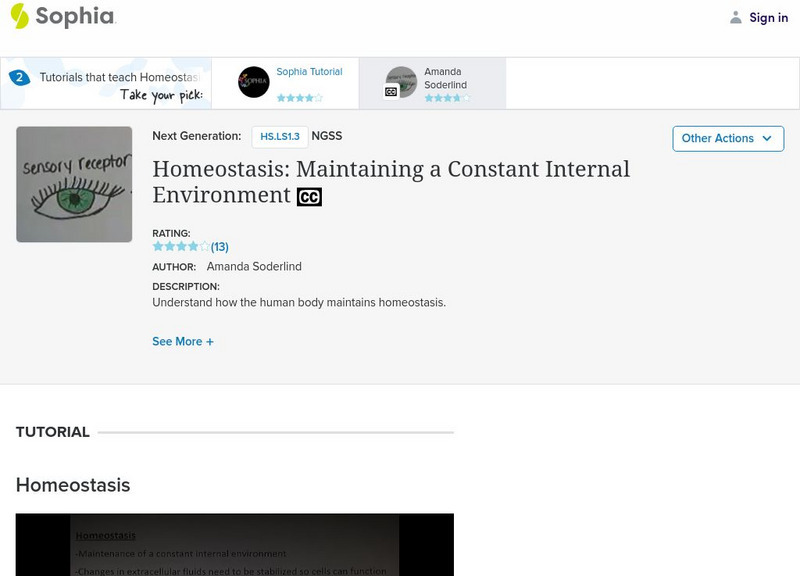Tarver Academy
How to do the Distance Formula
In This Episode, Tyler Teaches Us About How to do the Distance Formula
Bill Carmody
Writing Effective Persuasive Claims and Complaints
In this video, Bill Carmody provides tips on writing effective and persuasive claims and complaints. He emphasizes the importance of stating facts, being specific, and using simple language to make a persuasive claim.
Bozeman Science
Concept 7 - Stability and Change
Paul Andersen explains how stability and change are regulated in systems through controls and feedback. Controls are used to regulate matter and energy flowing into a system. Feedback mechanisms within the system are used to regulate...
Curated Video
High Performance Scientific Computing with C 2.3: Discrete versus Fast Fourier Transform
How can we deal with spectral data? How can we apply divide-and-conquer approaches to numerical algorithms? • See how simple the DFT is to implement • Learn how to apply the divide-and-conquer approach for the FFT • See the huge speed-up...
Curated Video
GCSE Biology - Control of Blood Glucose Concentration #56
Learn how the body controls it's blood glucose concentration using the hormones insulin and glucagon. We'll also see how these two hormones interact in a negative feedback loop.
Science360
Silk - If Spiders and Worms Can Do It, Why Can't We
Future research could spin up new medical and materials breakthroughs based on silk, but obstacles remain in quest to replicate natural silk production, scientists say in this week's edition of Science.
Curated Video
How Insulin and Glucagon Control Blood Glucose Concentration
This video explains how the body regulates blood glucose levels through the hormones insulin and glucagon produced by the pancreas. The video also touches on the concept of negative feedback, where the body senses and responds to changes...
Cerebellum
The Human Body Nervous Systems - Cranial Nerves
Experts in neuroscience help us understand why the human brain is a marvel of structure and function. This program examines the interaction of the spinal cord and nerve endings, as well as fascinating concepts like involuntary and...
Mazz Media
Blood Pressure (Measurement and Control)
In this live-action program viewers will learn that blood pressure is the force of blood pushing against the walls of arteries and as the heart beats, it creates the pressure exerted by blood, moving blood throughout the circulatory...
FuseSchool
What is Homeostasis?
So what is homeostasis is a term first defined by Claude Bernard in 1865 it means maintaining a constant internal environment this is a bit like car brain works senses all around the body imaging various things and sending the...
Curated Video
GCSE Biology - Homeostasis #54
How does your body regulate your internal conditions? How does it detect changes and respond to them? What is an automatic control system and how does it use negative feedback? Find out all this and more in less than 5 minutes!
Curated Video
Hormones: Adrenaline and Thyroxine
This video discusses two hormones produced by the body: adrenaline and thyroxine. The video provides an explanation of what hormones are, how they work, and the effects of adrenaline and thyroxine on the body. It also includes...
Curated Video
Biology - How the Kidneys Work - (Kidneys Part 1/3) #27
This video covers: - The 3 main functions of the kidneys: 1) removing waste, 2) regulating levels of ions, and 3) regulating levels of water - How the kidneys can achieve all of this using filtration and selective reabsorption - How...
Rachel's English
Tell me About Yourself *Used in a Live Stream May 9 2020
In this video you will watch mock interviews to see examples of how to answer some of the most common interview questions. You’ll get tips on how to prepare for behavioral interviewing questions and watch interviewees provide answers to...
Curated Video
What is Homeostasis? | Physiology | Biology | FuseSchool
What is Homeostasis? | Physiology | Biology | FuseSchool Homeostasis is a term first defined by Claude Bernard in 1865. It means maintaining a constant internal environment. Senses all around the body are measuring various things and...
Curated Video
GRIT: Character Traits that Matter for School, Work and Life
Join us at https://www.patreon.com/sprouts and listen to http://www.econtalk.org/archives/2016/07/angela_duckwort.html for a deeper insight into the concept. Sources: http://www.webcitation.org/62C0yfhcJ...
Curated Video
Insulin and Glucagon | Physiology | Biology | FuseSchool
Insulin and Glucagon | Physiology | Biology | FuseSchool In this lesson, you will learn about how your blood glucose level is regulated (or controlled) by two important hormones – insulin and glucagon, via a negative feedback system....
FuseSchool
Insulin and Glucagon
In this lesson, you will learn about how your blood glucose level is regulated (or controlled) by two important hormones – insulin and glucagon, via a negative feedback system. When you consume a meal that is high in carbohydrates, such...
Howard Hughes Medical Institute
Leptin Feedback Control System
Hormones come from many parts of the body, including the hormone leptin produced by fat tissues. This in turn, controls each person's hunger levels. Interested nutritionists view the feedback loop relating food intake, hormone levels,...
Sophia Learning
Sophia: Homeostasis: Maintaining a Constant Internal Environment
This lesson will examine various homeostatic controls that allow the body to maintain a constant internal environment.





